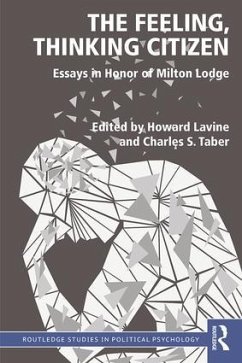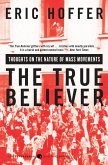This book is an appreciation of the long and illustrious career of Milton Lodge. Having begun his academic life as a Kremlinologist in the 1960s, Milton Lodge radically shifted gears to become one of the most influential scholars of the past half century working at the intersection of psychology and political science. In borrowing and refashioning concepts from cognitive psychology, social cognition and neuroscience, his work has led to wholesale transformations in the way political scientists understand the mass political mind, as well as the nature and quality of democratic citizenship.
In this collection, Lodge's collaborators and colleagues describe how his work has influenced their own careers, and how his insights have been synthesized into the bloodstream of contemporary political psychology. The volume includes personal reflections from Lodge's longstanding collaborators as well as original research papers from leading figures in political psychology who have drawn inspiration from the Lodgean oeuvre. Reflecting on his multi-facetted contribution to the study of political psychology, The Feeling, Thinking Citizen illustrates the centrality of Lodge's work in constructing a psychologically plausible model of the democratic citizen.
In this collection, Lodge's collaborators and colleagues describe how his work has influenced their own careers, and how his insights have been synthesized into the bloodstream of contemporary political psychology. The volume includes personal reflections from Lodge's longstanding collaborators as well as original research papers from leading figures in political psychology who have drawn inspiration from the Lodgean oeuvre. Reflecting on his multi-facetted contribution to the study of political psychology, The Feeling, Thinking Citizen illustrates the centrality of Lodge's work in constructing a psychologically plausible model of the democratic citizen.
'The depth and range of Milton Lodge's contributions to political psychology are highlighted by the distinction of the authors contributing to this volume. Its broad focus encompasses motivated reasoning, transfer of affect, and the problem of wobbly citizen civic expertise, among other topics.' -David O. Sears, Distinguished Professor of Psychology and Political Science, UCLA
'This is an important book. It demonstrates the powerful and far reaching influence that Milton Lodge has had on the development of political psychology. Not only has his personal research had a singular influence on the field but his example has demonstrated how political psychologists should conduct their work to meet the highest academic and scholarly standards.' -Edward G. Carmines, Distinguished Professor, Warner O. Chapman Professor of Political Science, and Rudy Professor, Indiana University
'This is a book to prize. It is above all a book of ideas-most centrally, the ideas of the preeminent researcher in the field, Milton Lodge, but additionally, as a bonus, the ideas of many who have had the good fortune of learning from him by working alongside him.' -Paul M. Sniderman, Fairleigh S. Dickinson Jr. Professor of Public Policy, Stanford University
'This is an important book. It demonstrates the powerful and far reaching influence that Milton Lodge has had on the development of political psychology. Not only has his personal research had a singular influence on the field but his example has demonstrated how political psychologists should conduct their work to meet the highest academic and scholarly standards.' -Edward G. Carmines, Distinguished Professor, Warner O. Chapman Professor of Political Science, and Rudy Professor, Indiana University
'This is a book to prize. It is above all a book of ideas-most centrally, the ideas of the preeminent researcher in the field, Milton Lodge, but additionally, as a bonus, the ideas of many who have had the good fortune of learning from him by working alongside him.' -Paul M. Sniderman, Fairleigh S. Dickinson Jr. Professor of Public Policy, Stanford University









